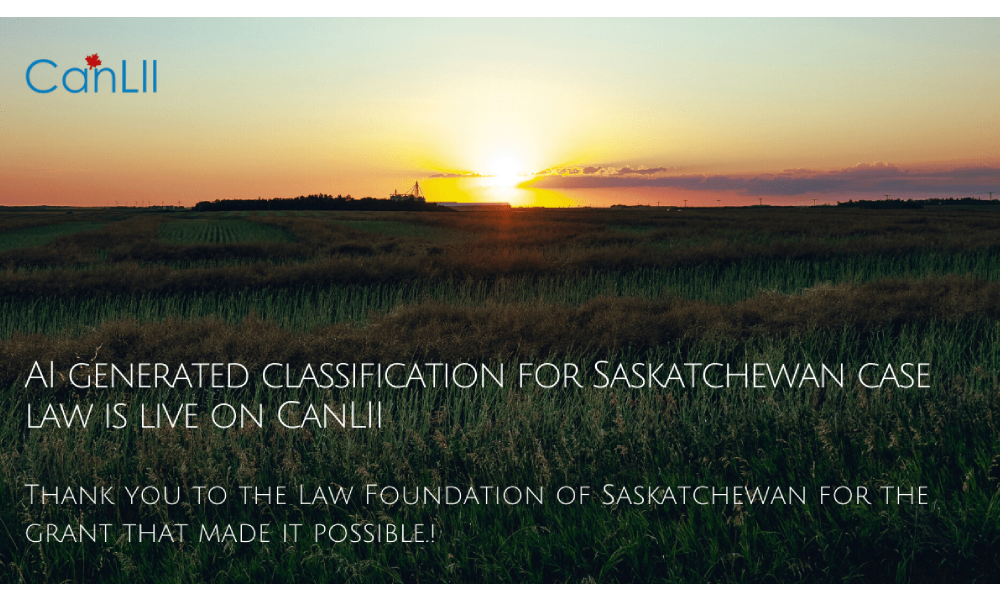Workshop sought to empower information providers in offering public legal information assistance

The Law Society of Saskatchewan has announced that a new AI-generated classification has been implemented for the province’s case law, published on CanLII.org now and in the future, thanks to a machine-learning initiative conducted by CanLII and Lexum.
The new classification terms are visible here under the italicized keywords, which are still available for all cases published on CanLII. The initiative used machine-learning techniques to automatically generate case law classification by practice area with respect to decisions from Saskatchewan’s Court of Appeal, Court of Queen’s Bench and Provincial Court, said a news release.
The Law Foundation of Saskatchewan provided the grant that facilitated the project’s completion, while Lexum contributed knowledge to assist in the project’s implementation and the Law Society of Saskatchewan Legal Resources Library permitted the use of the classification terms in their digests database as training data.
There are plans to expand this new functionality to more Canadian jurisdictions.
The Law Society of Saskatchewan has also introduced new Legal Information Guidelines seeking to improve the dissemination of credible legal information, to outline how an information provider can address the legal information needs of the public, and to explain to members of the public what to look for when deciding on an information provider and how an information provider can assist them.
The law society announced in its news release a free interactive workshop, which took place on June 23, which sought to provide attendees with an overview of the guidelines, to explain the difference between legal information and legal advice, to offer various scenarios and practical examples and to show how the guidelines may be utilized while delivering legal information.
The presenters at the free session included Ken Fox and Alan Kilpatrick, co-directors and librarians, legal resources; Julie Sobowale, communications director; and Pamela Kovacs of the Senior Policy Council.
In other news, MLT Aikins LLP congratulated Kali Frank, its articling student, who won the Law Society of Saskatchewan’s gold medal for 2021, an accolade vested to the law student with the highest academic standing in the Juris Doctor graduating class.
Frank, who received her law degree with great distinction from the University of Saskatchewan this year, worked as a summer student at the MLT Aikins Saskatoon office and will also complete her articles at the firm. She aims to build a corporate/commercial law practice in the future.










